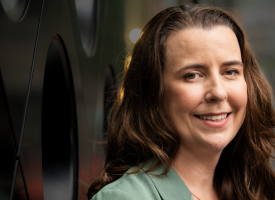AMA Queensland Election Priorities 2024
AMA Queensland has released its Election Priorities 2024, identifying 17 priority areas for reforms that will greatly benefit Queensland’s patients, doctors and the community.

All political parties must make fixing the healthcare workforce crisis their main priority in the coming state election campaign.
AMA Queensland has released its Election Priorities 2024, identifying 17 priority areas for reforms that will greatly benefit Queensland’s patients, doctors and the community.
“Queensland’s health workforce crisis has deepened on the back of the COVID-19 pandemic, due to the worldwide shortage of doctors, nurses and other healthcare practitioners,” AMA Queensland President Dr Nick Yim said.
“This has led to our own workforce shortages, elective surgery delays, ambulance ramping and growing financial pressures on general practice.
“These problems have been building for decades and while some are out of our control, there are levers we can pull to start fixing things.
“We offer our Election Priorities as a blueprint for all parties. We encourage whoever forms government after 26 October to commit to these reforms to improve the health of every Queenslander.
“Not only do we have chronic shortages of doctors in rural, remote and First Nations communities, but even large regional and some metropolitan areas are struggling to attract and retain staff.
“We need better workforce incentives, more doctor involvement in leadership decisions, and sufficient training places for our junior doctors and international medical graduates (IMGs).
“We must rebuild our regional specialist workforce so patients do not have to travel so far for treatment and pregnant families can have their babies at their local hospital.
“Payroll tax remains an ongoing concern for private medical practices, and we call on all parties to implement an exemption for all private practices, consistent with arrangements for public and most private hospitals.
“We are in a cost-of-living crisis and now is not the time to make seeing a GP more expensive for patients, many of whom are older with more chronic disease. We should be investing in preventive care, not taxing it.”
AMA Queensland Election Priorities 2024 is available here
The priorities are:
- Workforce – broader incentives to attract and retain doctors in regional, remote and rural areas, particularly First Nations doctors, more doctors employed with sustainable workload, and basic facilities for hospital doctors, including offices, workstations and IT systems.
- Training pathways – Queensland Health to work with the Medical Board, colleges and universities to ensure requisite training places are available for the number of doctors needed, and ongoing funding for the General Practice Trainee Grant Program.
- Leadership – embed doctors in decision-making processes and leadership at senior levels in HHSs and Queensland Health, and implement all recommendations of the Wilson Review into whistleblower protection laws.
- Wellbeing – reform of regulatory processes, reduced workloads for doctors in training, support for First Nations doctors and IMGs, and all HHSs to undertake exit interviews as a routine.
- Surgical Wait List Roundtable Action Plan – more support for regional doctors and nurses so Queenslanders have surgical services close to home, and fundamental reform of Queensland Health and funding models.
- Primary-tertiary integration – greater coordination between general practice and public hospitals to reduce ED presentations, establish a dedicated governance role for general practice within Queensland Health, and scale up the Patient Care Facilitators initiative currently being trialled in Ipswich and Logan.
- Payroll tax – implement an exemption for all private practices and extend the amnesty to all medical practices to provide financial certainty for non-GP specialists and their patients.
- Prevention – greater investment in high quality primary care, particularly general practice, and state government advocacy to the federal government to jointly address the underlying causes of poor health outcomes.
- Collaborative, evidence-based care – undertake a joint Queensland Health/AMA Queensland PhD research project to identify tasks undertaken by doctors that can be safely performed by other health professionals to improve patient flow and care by having doctors spend maximal time working at the top of their scope.
- Digital integration – invest in integrating digital systems in our primary care and tertiary systems to promote necessary information-sharing and continuity of care, and urgently rectify ongoing issues with systems including ieMR and QScript.
- First Nations health – support programs advocated for by First Nations health organisations, including the Institute for Urban Indigenous Health (IUIH) and the Queensland Aboriginal and Islander Health Council (QAIHC), and invest in the underlying causes of poor health outcomes.
- Women’s health – prioritisation and increased investment in maternity care, termination of pregnancy services, and alcohol and other drug treatment services.
- Climate and sustainability – reduce carbon emissions and waste production in hospitals and health services, including single-use items, biohazardous waste and high use of non-renewable energy, and implement environmental sustainability pilot programs in hospitals and GP clinics.
- LGBTQIA+SB community – policy support and funding for the establishment of a voluntary suicide register, representation on key research and health bodies, and academic and consumer representation on the Australian Medical Council.
- Mental health – actively engage with the broader mental health sector to immediately implement programs under already-funded initiatives and identify crucial gaps in patient access.
- Aged and end-of-life care – ensure all unallocated funds from the $171 million investment announced in the 2022-23 budget are reinvested in end-of-life care, with a separate funding stream for Voluntary Assisted Dying (VAD) services.
- Substance-related harm – additional funding for health services to treat the anticipated 17,000 people who will access drug diversion schemes, funded through allocating a proportion of the savings to our criminal justice system to Queensland Health.



